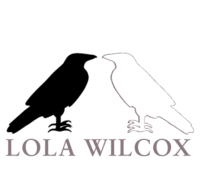Division 1 – Personal/Professional Development Consultants
In this division, the new member’s work focuses upon individual developmental processes in combination in the following contexts:
- Interpersonal relationships
- Small group relationships
- Organization
- Community and
- Culture (i.e., ethnic, gender and special groups).
The direction of the consultant’s effort is in developing professional capability in the client, regardless of the client’s position or level in society. The emphasis of this work is exclusively to increase the client’s ability to use their existing potential within whatever psychodynamics or character patterns exist, rather than to alter those factors or attempt a cure of any supposed malfunction. In this division, the new member serves as an educational trainer/coach/consultant rather than as a therapist. This educational function involves working with individuals, both one-to-one and in groups, with the new member’s helping efforts focused on developing several skills, such as:
- Self assessment. in order to raise awareness of behaviors, patterns and their impact
- Dealing with cultural, race, gender, age, sexuality and class differences.
- Personal time management.
- Securing and utilizing feedback, re: one’s effectiveness as a member and leader in groups.
- Designing and implementing a personal growth plan.
- Defining a desired future for self (e.g., career planning including organization change and fit) • Planning for terminations, succession and/or reorganizations
- Developing and using a support system for self.
- Defining and dealing with personal resistance to changes.
- Dealing with life transitions, life-space changes.
- Life and end of life planning.
- Lifelong learning including willingness to examine beliefs, perspectives and develop new skills
Broad Criteria for Work in this Division
These are expectations about what a new member would be working in or on – not that a consultant would meet all of these criteria at the time of application. A consultant meets the requirements for this division when she or he has the following proficiencies:
-
- Performs all professional acts ethically and competently including being properly trained and/or knowing the ethical and professional boundaries of, for example coaching, consulting or therapy, so as to not delve into matters with which they are not trained to deal.
- Is capable of establishing and maintaining an effective working relationship with an individual, either one-to-one or in a group setting.
- If doing coaching, is able to articulate a general definition and distinguishing characteristics for training, coaching, consulting and therapy, as well as some understanding of when and in what situations each intervention seems most likely to support desired outcomes.
For example:
Individual work called coaching can be specifically developed and contracted as standalone work or as part of a larger organizational change charter and typically includes:
-
-
- A deliberate, personalized, action learning process to enhance effective action that provides a client with free and informed choices based on valid information, often considered within an insight-driven dialogue, thereby creating the likelihood of internal commitment to those choices;
- Individual work called therapy, although rapidly evolving, is traditionally more focused on interpersonal health and an identifiable issue that interferes with the client’s level of functioning and current psychodynamic or psychosocial adjustment. Therapy typically includes a retrospective focus; a doctor/patient relationship from a medical practice model; and, an authoritative role of providing treatment;
- Individual one to one work called consulting may include aspects of coaching. It often happens between a consultant and a leader as part of a dynamic values-based approach to a wide variety of collaborative systems change in an organization.
- Has the capability to diagnose developmental stages of clients and their current knowledge and capabilities, can design learning structures and processes which build on current capabilities and can establish realistic and efficient steps for the person’s learning and development.
- Designs an environment where the physical, emotional and cognitive functions are available to meet the required individual’s objectives.
- Has knowledge of the developmental stages of individual adults.
- Has the ability to understand, recognize and describe the culture issues of the client’s major cultural group with whom she or he is working.
- Has knowledge of the effect of political and economic injustice on individuals, groups, organizations and the society of the client.
- Demonstrates the ability to recognize individual psycho-social-pathological conditions and know when to deal directly or indirectly with them through consultation, coaching, training design, and/or by referral, so as to maintain a focus on personal development rather than therapy.
- Demonstrates the capability to diagnose client readiness for developmental stage transitions and design experiences that may result in individuals making transitions along those developmental lines.
- Demonstrates the ability to design steps in the developmental experiences that maximize the client’s self-responsibility, self-management and learning.
- Demonstrates the ability to continually evaluate the work being done, preferably involving the client directly, which provides guidance in adjusting the direction, methodology and duration of the contract to the needs of the client.
- Demonstrates that effective evaluations are planned and executed to measure the effectiveness of the training and consultation work and to assess the longer-term success of the client in utilizing the knowledge and skills gained.
-

